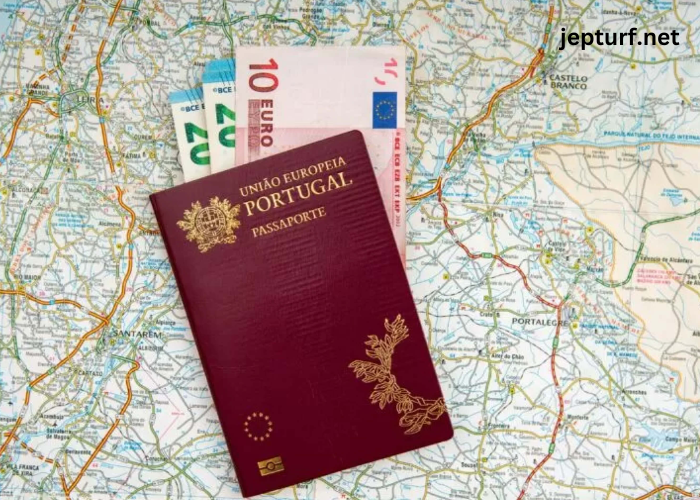The human spirit is inherently nomadic, an intangible force driving us to explore, wander, and seek new horizons. For millennia, our ancestors roamed the Earth, in search of sustenance, adventure, and knowledge. While our modern lives have become increasingly sedentary and routine, the desire for exploration still burns within us. This deep-seated urge to embark on the path less traveled, to lead a nomadic life, remains a powerful and universal dream.
In recent years, the concept of a nomadic lifestyle has experienced a resurgence. People are leaving behind traditional notions of home and stability in favor of a life characterized by mobility, adventure, and spontaneity. Whether they’re living in a camper van, backpacking across continents, or working remotely from exotic locations, modern nomads are redefining the meaning of a fulfilling life.
This article explores the allure of a nomadic existence, the reasons behind this growing trend, the challenges it presents, and the profound transformations it can bring to one’s life.
The Allure of Nomadic Dreams
- Freedom and Independence: One of the primary appeals of the nomadic lifestyle is the freedom it offers. In a world that often feels restrictive and bound by societal norms, the nomad revels in the liberty to go wherever the wind takes them. They are not tethered to a fixed address or a 9-to-5 job, allowing them to shape their days and experiences as they see fit.
- Cultural Immersion: Nomads have the unique opportunity to immerse themselves in diverse cultures. By living among local populations, they gain insights and understanding that tourist experiences rarely offer. This cultural exchange broadens their horizons and fosters a deeper appreciation for the world’s diversity.
- Personal Growth: Traveling can be a transformative experience. The challenges of navigating unfamiliar territories, adapting to new environments, and engaging with people from different backgrounds can lead to significant personal growth. Nomads often find that they become more adaptable, open-minded, and self-reliant through their journeys.
- Minimalism and Sustainability: Nomadic living often encourages a minimalist lifestyle. When your life fits into a backpack or a small camper, you learn to value experiences over possessions. This shift towards minimalism is not only liberating but also more sustainable, as it reduces one’s ecological footprint.
- Adventure and Discovery: The nomadic life is an ongoing adventure, filled with moments of awe and discovery. Exploring uncharted territories, witnessing breathtaking landscapes, and stumbling upon hidden gems become routine occurrences for those on the road.
The Rise of Modern Nomadism
The resurgence of the nomadic lifestyle in contemporary society can be attributed to several key factors:
- Remote Work Revolution: The rise of remote work has shattered the traditional notion of a fixed office location. As technology enables work from anywhere with an internet connection, many professionals have seized the opportunity to break free from the cubicle and embrace a location-independent lifestyle.
- Digital Connectivity: The proliferation of smartphones and the availability of high-speed internet globally have made it easier than ever to stay connected while on the move. Nomads can work, learn, and communicate with loved ones from virtually anywhere in the world.
- Affordability: Contrary to popular belief, nomadic living can be surprisingly affordable. The cost of living in many exotic destinations is lower than in Western countries, making it feasible for individuals to maintain a comfortable lifestyle while traveling extensively.
- Online Communities: Online communities and social media platforms have created a network of like-minded individuals who share their nomadic experiences. These communities offer advice, support, and a sense of belonging to those pursuing a similar path.
Challenges of a Nomadic Lifestyle
While the nomadic lifestyle offers numerous rewards, it is not without its challenges:
- Financial Instability: Income can be unpredictable for nomads, especially freelancers or those working on short-term contracts. The lack of a stable income source can be a source of stress and anxiety.
- Loneliness and Isolation: Constantly being on the move can lead to feelings of loneliness and isolation. Building deep, lasting relationships becomes more challenging when your social circle is constantly changing.
- Logistical Challenges: Managing the logistics of nomadic life, such as visas, accommodations, and transportation, can be complex and time-consuming.
- Healthcare and Safety: Access to healthcare can be a concern, especially in remote or developing regions. Additionally, nomads may find themselves in unfamiliar or potentially risky situations, necessitating a heightened awareness of personal safety.
- Lack of Stability: The absence of a stable home can lead to feelings of rootlessness and a sense of not belonging anywhere. The need to constantly adapt to new environments can be mentally and emotionally taxing.
Transformations Through Nomadic Living
Despite the challenges, a nomadic lifestyle can profoundly transform an individual in various ways:
- Increased Resilience: Facing the uncertainties of life on the road fosters resilience. Nomads learn to adapt quickly to changing circumstances and develop problem-solving skills that serve them well in all aspects of life.
- Enhanced Creativity: Exposure to different cultures, landscapes, and experiences can spark creativity. Many nomads find inspiration in their travels and use it to fuel their creative pursuits.
- Greater Empathy: Living among people from diverse backgrounds encourages empathy and cultural sensitivity. Nomads often develop a deeper understanding of global issues and the interconnectedness of humanity.
- Heightened Self-Awareness: Solitude and introspection often accompany the nomadic lifestyle. This can lead to a greater sense of self-awareness and a clearer understanding of one’s values and priorities.



